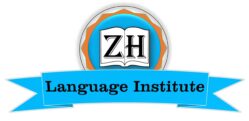Italian is a Romance language, and learning it can improve understanding of other Romance languages such as Spanish, French, and Portuguese. It is the official language of Italy, a country with a rich history, culture, and art.

There are several reasons why someone might want to learn Italian. Some of the most common reasons include:
It is a Romance language, and learning it can improve understanding of other Romance languages such as Spanish, French, and Portuguese.
It is the official language of Italy, a country with a rich history, culture, and art.
It is a widely spoken language around the world, with over 85 million native speakers and many more who use it as a second language.
Italian is a language of culture, fashion, cooking, music, design and art.
It can be useful for business and travel, as Italy is a popular tourist destination and an important economic partner for many countries.
Learning Italian can also help to improve cognitive abilities, such as memory and problem-solving skills.
Italian Language Syllabus According to Levels
Italian Level A1 Syllabus
The A1 level of the Common European Framework of Reference for Languages (CEFR) is considered the beginner level. A student at this level should be able to understand and use familiar everyday expressions and very basic phrases aimed at the satisfaction of needs of a concrete type. Below are some of the topics that may be covered in an A1 level Italian course syllabus:
Basic greetings and introductions.
Basic personal information, such as name, age, nationality, and occupation.
Basic vocabulary related to everyday activities, such as shopping, eating, and traveling.
Basic grammar, including verb conjugations for the present tense and basic sentence structures.
Basic vocabulary related to numbers, dates, and time.
Basic listening and speaking skills, including the ability to answer simple questions and carry on a basic conversation.
Basic reading and writing skills, including the ability to read and write short, simple texts.
Basic cultural knowledge of Italy and its people.
Italian Level A2 Syllabus
The A2 level of the Common European Framework of Reference for Languages (CEFR) is considered the elementary level. A student at this level should be able to understand sentences and frequently used expressions related to areas of most immediate relevance (e.g. very basic personal and family information, shopping, local geography, employment). Below are some of the topics that may be covered in an A2 level Italian course syllabus:
Basic grammar, including verb conjugations for the present and past tenses, basic sentence structures, and the use of prepositions.
Basic vocabulary related to everyday activities, such as shopping, eating, and traveling, as well as basic vocabulary related to the home, family, and health.
Basic listening and speaking skills, including the ability to understand and respond to simple questions and carry on a basic conversation on familiar topics.
Basic reading and writing skills, including the ability to read and write short, simple texts, such as emails and postcards.
Basic cultural knowledge of Italy and its people, including customs, traditions, and festivals.
Basic vocabulary related to work and employment, such as job titles and basic work-related vocabulary.
Basic vocabulary related to time, weather, and the calendar.
Basic vocabulary related to directions, locations, and transportation.
Basic vocabulary related to food and cooking.
Italian Level B1 Syllabus
The B1 level of the Common European Framework of Reference for Languages (CEFR) is considered the intermediate level. A student at this level should be able to understand the main ideas of complex text on both concrete and abstract topics, including technical discussions in his/her field of specialization. Below are some of the topics that may be covered in a B1 level Italian course syllabus:
Intermediate grammar, including verb conjugations for the present, past, and future tenses, complex sentence structures, and the use of idiomatic expressions.
Intermediate vocabulary related to everyday activities, such as shopping, eating, and traveling, as well as vocabulary related to the home, family, and health.
Intermediate listening and speaking skills, including the ability to understand and respond to questions and carry on a conversation on a wide range of topics.
Intermediate reading and writing skills, including the ability to read and write more complex texts, such as articles and short stories.
Intermediate cultural knowledge of Italy and its people, including customs, traditions, and festivals, as well as social and political issues.
Intermediate vocabulary related to work and employment, such as job titles and work-related vocabulary.
Intermediate vocabulary related to time, weather, and the calendar.
Intermediate vocabulary related to directions, locations, and transportation.
Intermediate vocabulary related to food and cooking.
An introduction to the subjunctive mood.
Study of the past participle and its usage
Study of the imperative mood
Italian Level B2 Syllabus
The B2 level of the Common European Framework of Reference for Languages (CEFR) is considered the upper-intermediate level. A student at this level should be able to understand a wide range of demanding, longer texts, and recognize implicit meaning.
They should also be able to express themselves spontaneously and fluently without much obvious searching for expressions. Below are some of the topics that may be covered in a B2 level Italian course syllabus:
Advanced grammar, including verb conjugations for the present, past, and future tenses, complex sentence structures, and the use of idiomatic expressions.
Advanced vocabulary related to a wide range of topics, such as current events, politics, culture, and literature.
Advanced listening and speaking skills, including the ability to understand and participate in conversations and discussions on a wide range of topics, as well as give presentations and express opinions.
Advanced reading and writing skills, including the ability to read and write complex texts, such as news articles, literary texts, and academic papers.
Advanced cultural knowledge of Italy and its people, including customs, traditions, and festivals, as well as social and political issues.
Advanced vocabulary related to work and employment, such as job titles and work-related vocabulary.
Advanced vocabulary related to time, weather, and the calendar.
Advanced vocabulary related to directions, locations, and transportation.
Advanced vocabulary related to food and cooking.
Study of the subjunctive mood in more complex grammatical structures.
Study of the passive voice and its usage
Study of idiomatic expressions and colloquial language
Learning Begins With Us
The ZH Language Institute Foreign Language Institution is a premier language learning centre that offers a wide range of language courses for students of all ages and skill levels. Our institution is dedicated to providing high-quality language education to help our students reach their goals, whether it’s for personal or professional development.
We offer a variety of languages including Spanish, French, German, Italian, Chinese, Japanese, and many more. Our courses are designed to meet the needs of different learners, from beginners to advanced speakers. Our curriculum focuses on developing the four key language skills of speaking, listening, reading, and writing.
Our experienced and qualified instructors use a variety of teaching methods to make the learning process fun and engaging. We use interactive activities, real-life scenarios, and authentic materials to help our students develop their language skills in a natural and authentic way.
We also offer small class sizes to ensure that each student receives personalized attention and support. Our classes are held in comfortable and well-equipped classrooms, which provide the perfect learning environment.
In addition to our regular classes, we also offer intensive courses, conversation clubs, and cultural activities to provide students with a well-rounded language learning experience. We also have a resource centre that provides students with access to a wide range of materials, including textbooks, audio and video resources, and online resources.
Furthermore, we offer online classes and virtual classes, which provide flexibility and accessibility to students who are unable to attend regular classes. Our online classes are live, interactive and follow the same curriculum as our in-person classes.
Overall, the ZH Language Institute Foreign Language Institution provides a comprehensive and enjoyable language learning experience for students of all levels. We are dedicated to helping our students achieve their language learning goals and to become confident and proficient speakers of their chosen language.
Classes

Go Lingua The Institute of Foreign Languages is offering Italian language classes.

The Italian Language Course is Offered by Speakeng India.

Italian Cooking classes are offered by AIMS Cooking Classes for all skill level.

IG Institute of Language is offering you the best Italian language learning classes in Kolkata, West Bengal. Here, we provide high-quality training so that you can master the Italian language in reading, writing, and speaking.

We would also arrange classes for the other foreign languages depending on the number of participants registered. However, a minimum quorum is a must in order to start a new course on request.
© 2025 coursetakers.com All Rights Reserved. Terms and Conditions of use | Privacy Policy